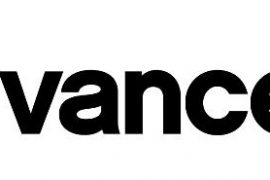Part 3 – MCQs, knowledge transfer and the role of feedback
We saw in parts 1 and 2 how MCQs can help activate the retrieval process to reinforce learning (testing effect), and how they can stabilise marginal knowledge (knowledge that is stored in memory but is not accessible at a given moment). In part 3 we look at whether this learning can be applied, and how feedback can help.
Is learning from MCQs transferable?
A review of research into the testing effect and application of knowledge analysed a number of experiments on testing and knowledge transfer – and confirmed that testing led to robust benefits in transferral to different contexts within and across knowledge domains. Examples include extrapolating from tested information to related but previously untested problems, transferring mathematical rules to novel contexts, and drawing inference to answer questions that differed quite dramatically in surface details, but shared underlying concepts to previously tested questions.
Another review of research into retrieval practice using MCQs found that not only were MCQs effective in consolidating learning, but also that this learning was transferrable to different contexts. In one experiment, students studied factual passages and then were divided into three groups; the first group repeatedly restudied the passages; the second group repeatedly restudied isolated sentences containing critical concepts, and the third group repeatedly took tests on the critical concepts. A week later all three groups took a test requiring application of the knowledge to a different context. The testing group performed significantly better in the final test than both the restudying groups, who performed about equally.
Negative testing effect
Multiple choice questions necessarily include incorrect answers, so you might wonder whether exposing students to incorrect answers would result in them learning misinformation (negative testing effect). Research does show that there can be a negative testing effect, especially if students are taking tests on content they have not seen before, less so on previously learnt knowledge. This negative testing effect can be reduced by providing feedback – specifically identifying the correct answer for the MCQs.
Feedback
Other research confirms that providing feedback on practice quizzes does have a positive impact on final performance. Comparing short answer quizzes with MCQs as a study aid, feedback on the practice tests was provided to half the participants in each group. For both practice test types, the groups given feedback performed better in a final cued recall test.
Feedback has been found to enhance long term retention of knowledge. Giving the correct answer increases students’ learning by either correcting their errors or confirming and maintaining the correct response:
The critical mechanism in learning from tests is successful retrieval; however, if test-takers do not retrieve the correct response and have no recourse to learn it, then the benefits of testing can sometimes be limited or absent altogether. Thus, providing feedback after a retrieval attempt, regardless of whether the attempt is successful or unsuccessful, helps to ensure that retrieval will be successful in the future.
Roediger and Butler, 2011
Feedback options for MCQs in Canvas Quiz
When creating quiz questions, you can give students useful feedback in the answer comments fields. You can leave feedback for each response, – either correct or incorrect, and you can also create general answer comments for the quiz question as a whole.
Students who select the correct answer will see the feedback for the correct answer; those who select any incorrect answer will see the feedback for the answer they have selected.
All students will see the general answer feedback.
See the canvas guides for more help creating MCQs and providing feedback.
When using quizzes formatively, you may choose to let students take the quizzes multiple times. In this situation, you might not wish to reveal the correct answer, but provide sufficiently detailed feedback or links to content in the incorrect answer fields to help students to come to the correct answer themselves.





